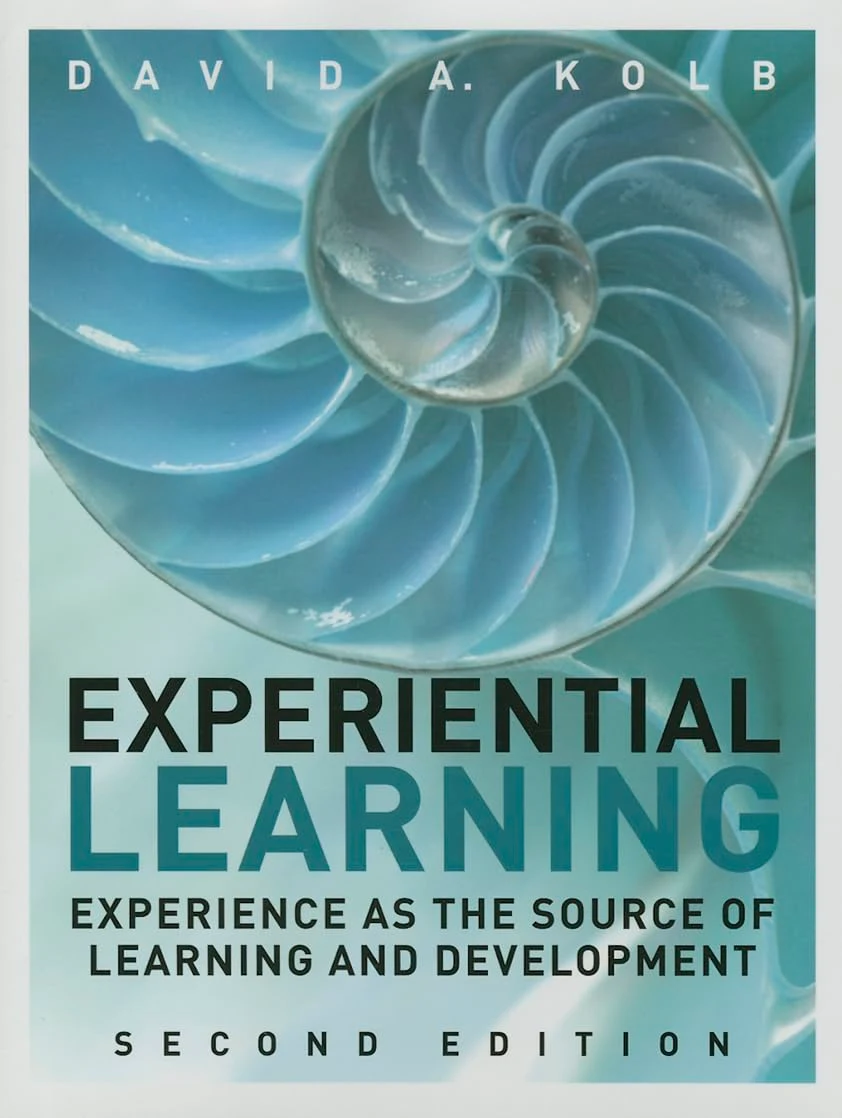From the Back Cover
David A. Kolb’s Definitive Statement of Experiential Learning Theory (ELT): Reflecting 30 Years of New Research and Theoretical Advances
A complete structural model of learning, integrating modern insights from psychology, philosophy, and physiology
Ranges from ELT’s history to its newest applications in higher education and lifelong learning
Introduces the powerful nine-style Kolb Learning Style Inventory 4.0 with assessment of learning flexibility
In this revised edition of Experiential Learning, David A. Kolb offers the most complete and up-to-date statement of Experiential Learning Theory (ELT), an approach that has shaped the fields of human learning and development for decades. Kolb adds new research and reflections at the end of each chapter, preserving his original theory while illuminating key advances and theoretical issues raised during the past 30 years.
After reviewing ELT’s historical roots, Kolb turns to contemporary applications in education, organization and management development, and adult learning. Next, he introduces a structured model of the learning process based on two key dimensions: prehension and transformation.
Kolb explores new linkages between ELT and modern research into neuroscience, learning styles, and personal types; and introduces his improved Kolb Learning Style Inventory 4.0 assessment. Finally, he shares important new insights into adult development, specialization in higher education, and integrative development for lifelong learning.
Experiential learning is a singularly powerful approach to teaching and learning that is based on the fact that people learn best through experience. Now, in this extensively updated book, David A. Kolb offers the most complete and up-to-date statement of the theory of experiential learning and its modern applications in education, work, and adult development.
Experiential Learning, Second Edition builds on intellectual origins defined by figures such as William James, John Dewey, Kurt Lewin, Jean Piaget, and L. S. Vygotsky, while also reflecting three full decades of research and practice since the classic first edition.
Kolb models underlying structures of learning based on the latest insights in psychology, philosophy, and physiology. Building on a comprehensive learning cycle model, he offers an exceptionally useful typology of nine individual learning styles, and corresponding structures of knowledge in diverse academic disciplines and careers. He also applies experiential learning to higher education and lifelong learning, especially with regard to adult education.
This edition reviews recent applications of experiential learning, updates Kolb’s framework for today’s organizational and educational landscape, and features new examples in the field and classroom. It will be valuable for anyone who wants to improve learning anywhere: in higher education, training, organizational development, lifelong learning environments, and online.
About the Author
David A. Kolb is the Chairman of Experience Based Learning Systems (EBLS), an organization that he founded in 1980 to advance research and practice on experiential learning. EBLS conducts basic research on Experiential Learning Theory and has developed many experiential exercises and self-assessment instruments including the latest Kolb Learning Style Inventory 4.0. The EBLS program of research on experiential learning is ongoing in collaboration with an international network of researchers, practitioners and learning partners.
He received his BA in psychology, philosophy, and religion at Knox College and his Ph.D. in social psychology from Harvard University. He was a professor of organizational behavior and management at the MIT Sloan School of Management and at the Weatherhead School of Management, Case Western Reserve University, where he is currently Emeritus Professor of Organizational Behavior.
He is best known for his research on experiential learning and learning styles described in this book, Experiential Learning: Experience as the Source of Learning and Development. Other books include Conversational Learning: An Experiential Approach to Knowledge Creation, Innovation in Professional Education: Steps on a Journey from Teaching to Learning, and Organizational Behavior: An Experiential Approach. In addition, he has authored many journal articles and book chapters on experiential learning.
David A. Kolb has received several research recognition awards and four honorary degrees recognizing his contributions to experiential learning in higher education.









0 Reviews:
Post Your Review
Thank you for engaging with our content! Your thoughts matter to us. Please feel free to share your insights, questions, or feedback. We value your input and look forward to fostering meaningful conversations. Happy commenting!